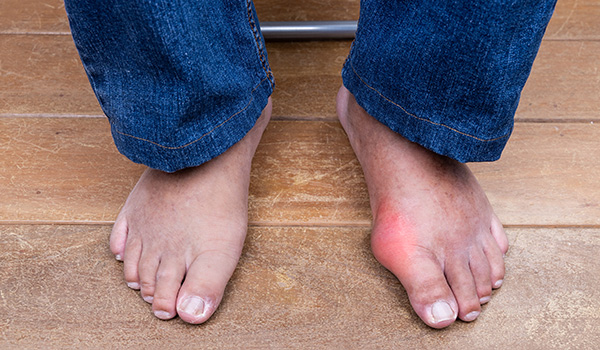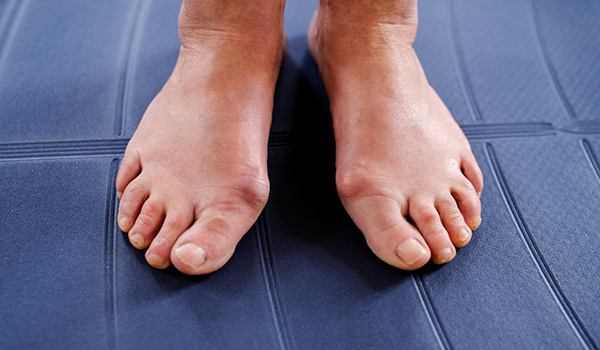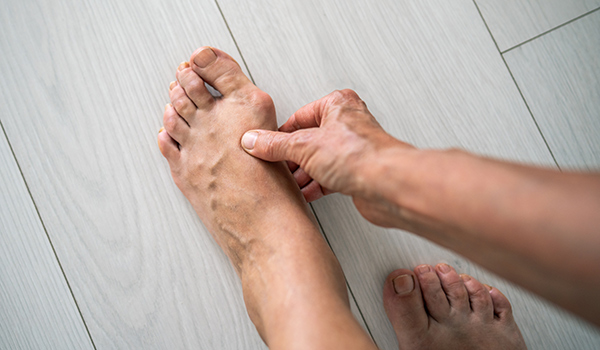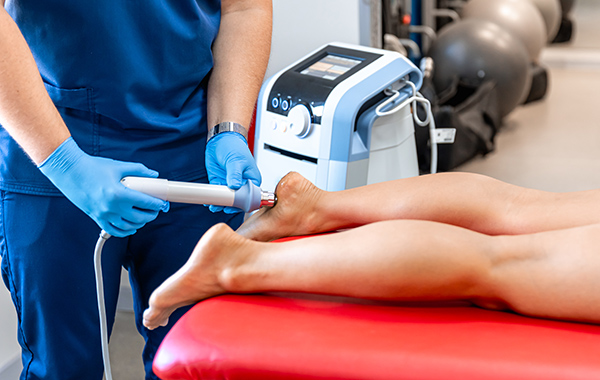Bunions
UNDERSTANDING BUNIONS
Overview
In Singapore, bunions, also called “hallux valgus,” are a common foot problem. They appear as a bump or swelling at the base of the big toe. This bump happens because the big toe starts leaning toward the second toe, making it look like there’s an extra bone on the side of the foot. Bunions might start small but can grow painful and look unattractive over time. If left untreated, the toes can even overlap, causing constant joint pain. This pain can make it hard to find comfortable shoes and limit daily activities. The discomfort and appearance of bunions can be so bothersome that many people wonder if there’s a way to cure them.

What causes bunions in Singapore?

Family history
Injury
Joint issues
Wearing the wrong shoes
What are the symptoms?
Pain in and around the big toe
Corns where there’s pressure
Redness and swelling at the joint
Limited movement

What can a podiatrist do for patients with Bunions?

As specialists in foot and leg anatomy, podiatrists provide personalized non-surgical treatments tailored to your needs. These options can include:
Recommendations for ergonomic shoes
Custom orthotic insoles to help realign the joint and improve foot function, which can reduce long-term damage and pain
Medical technologies like ESWT, which uses sound waves to break up calcium deposits and stretch ligaments and tendons
Frequently Asked Questions
Why is My Big Toe Changing Shape?
The bony growth you see at the base of your big toe is called a bunion. Bunions happen when the bones in that part of your foot move out of their normal position. As a result, your big toe gets pushed towards the other toes, and the joint at the base of your big toe sticks outwards.
What Causes Bunions?
In Singapore, many people think that wearing shoes like high heels causes bunions, but recent research suggests that genetics is the biggest risk factor. People with certain foot shapes or conditions, as well as those who stand or walk for long periods, are more likely to develop bunions.
Do Bunions Go Away On Their Own?
A frequent question at our clinic is whether bunions can disappear on their own. Unfortunately, bunions don’t go away or return to their original shape without treatment, and they are likely to get worse as time goes on.
Do I Need To See The Podiatrist If My Bunion Doesn't Hurt?
Since bunions don’t disappear on their own, ignoring one can make it worse. If left untreated, the bunion can progress to where the big toe completely overlaps the second toe, making surgery the only solution. Early treatment is crucial to prevent this from happening.
How Can We Manage Bunions?
Managing bunions conservatively involves prevention and maintenance. Since bunions tend to worsen over time, the aim is to keep them from getting worse. However, if the bunion is very severe, surgery may be recommended.
Do I Need Surgery For Bunions?
Some patients opt for surgery to remove bunions for cosmetic reasons due to the noticeable deformity. However, surgery is generally not recommended as the first option unless the patient has severe pain or the deformity keeps worsening despite other treatments.
Will Changing My Shoes Help My Bunions?
If you often wear tight or poorly fitting shoes, switching to better footwear may help prevent bunions from developing. However, if a bunion has already started forming, it will likely continue to gradually worsen over time, even if you start wearing the right shoes.
Book your initial podiatry visit
hello@nofrillspodiatry.com
Phone
9007 1085
Open Hours
Mondays - Sundays: 9am-6pm
We're Here Whenever You Need Us
hello@nofrillspodiatry.com
Contact Us
9007 1085
Open Hours
Monday-Sundays: 10am to 7pm
Address
About
About Us
Symptoms We Help With
FAQs
Careers
Contact Us